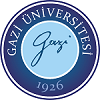
Send us your opinions, requests and evaluations.
Nursing at Gazi University was first opened in the School of Nursing, which was established under Gazi University with the decision of the Council of Ministers dated 04/07/1995 and numbered 95/7044, and with 42 students enrolled with an additional quota, Gölbaşı in the 1999-2000 academic year. He started teaching on campus.
The staff of the nursing department, which served as the School of Nursing between 1999-2008, was transferred to Gazi University Faculty of Health Sciences, which was established on 14.07.2008, and started to serve as the Department of Nursing.
Nursing department, serving at Gazi University Faculty of Health Sciences between 2008-2022, became the Faculty of Nursing with the President's Decision dated 03/08/2022 and numbered 5919.
Faculty of Nursing; It trains nurses responsible for the protection, development, care and treatment of the health of the individual, family and society, and the training period is 4 years. During this period, our students take courses from basic sciences and social sciences, as well as theoretical and applied courses related to the nursing profession. The applications of vocational courses are carried out in hospitals, mother-child health and community health centers, kindergartens, schools, workplaces, and nursing homes according to the content of the courses. To adapt to their professional life more easily after graduation and to provide quality care, our students practice as interns in various clinics and institutions in their senior year. Our students complete the undergraduate program in accordance with European Union standards with a total of 4600 hours and 240 credits.
In Faculty of Nursing, education is carried out in eight nursing departments, and each department provides service with academic staff consisting of academic members and staff who are experts in their fields and have national and international experiences.
In the faculty, graduate and doctorate programs in nursing are carried out.
Nursing students, our graduates who will lead nursing in the next century, are trained to work in hospitals, health centers, institutions/organizations providing private health services, schools, workplaces, institutions providing care for the elderly, and home care services. In addition, our graduates can continue their profession freely by opening private health cabins. Our students can continue their post-graduation education, provided that they pass the exam in the relevant education and training programs at universities and can receive science expertise and doctorate degrees. Our graduates can also work as nurses in charge of education, research, care, and management services in many countries of the world due to the equivalence of their diplomas.

Send us your opinions, requests and evaluations.